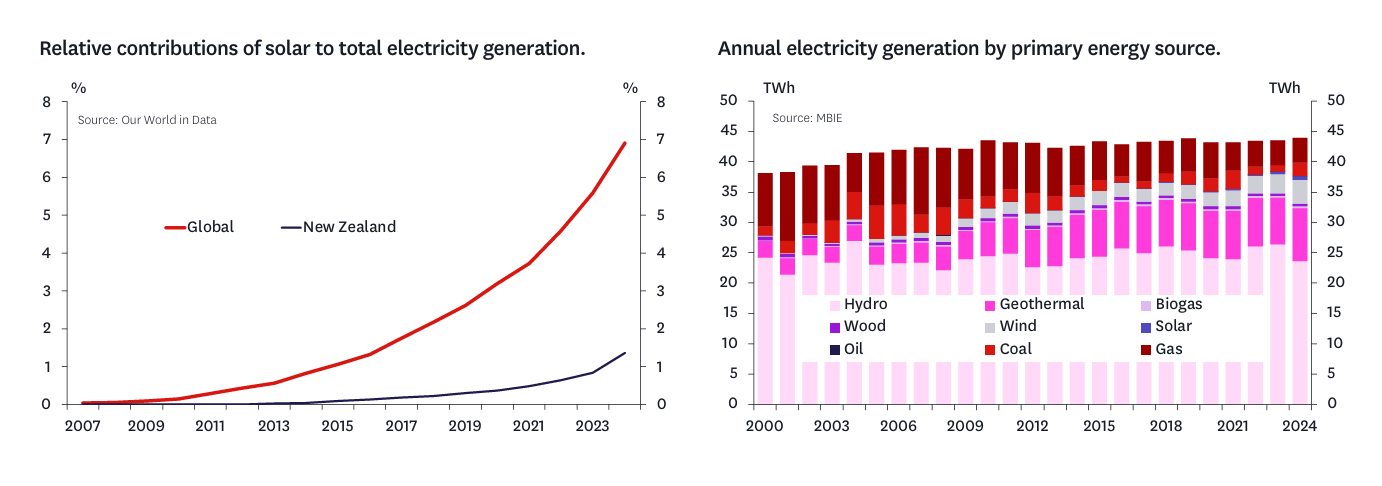The case for energy loans: read our latest explainer



"A cheaper, cleaner and more cheerful alternative".
As the report says:
New Zealand will need to dramatically upscale its electricity generation capacity in coming years, with solar set to play a starring role.
And for good reason. Solar is clean, with zero emissions. It is also adaptable. Solar can be installed anywhere and can be configured in many different ways. As such, it not only promotes energy self-sufficiency, but also community resilience to extreme weather and seismic events. It’s also cost effective. Upfront capital costs of solar continue to fall, while operating costs remain minimal. Solar also generates co-investment opportunities for a range of landowners and businesses, including Māori and Iwi.
Not surprisingly, we think the outlook for solar is promising. So do others. Work done by MBIE suggests that solar electricity generation could rise ten-fold by 2050, putting it on par with geothermal and wind. As such solar is set to be an important part of the energy mix.
That doesn’t mean though that there are not challenges. Regulatory reform has a role to play in encouraging investment in solar to achieve this type of growth. Upcoming changes to the Resource Management Act and the Overseas Investment Act, for example, should help to minimise compliance costs and make it easier for on- and offshore investors to invest in solar power, especially utility-scale solar.
Addressing the intermittency of solar is also important. Battery storage should be the answer. The issue though seems to be cost. While the cost of batteries has tracked lower over time, they remain an obstacle for many.
The national electricity grid needs to be able to handle potential intra-day mismatches between the supply and demand for electricity that can be exacerbated by solar. That should mean more investment in systems that dynamically balance supply and demand for electricity.
Community opposition is also something to consider, especially when it comes to solar farms. Early/ongoing stakeholder engagement and clarifying the benefits of having cheap distributed power is key. Finally, there is the issue of obtaining finance, which can be difficult especially for larger solar farms if there are no power purchasing or off-take agreements in place.
Despite these challenges, we believe that solar power has the potential to transform our energy future, delivering lower cost, lower emissions and more reliable energy solutions for New Zealanders.

Rewiring Aotearoa is in favour of universal Road User Charges as we believe it will address an artificial market distortion for vehicles that is not in New Zealand’s economic, fuel security, or resilience interests. Here's what we told the Select Committee.
Read moreDownload
The story of Uruguay's renewable push and why it's relevant here; EVs reach a tipping point in the EU, but they're growing in developing nations, too; Tauranga Crossing and Endless Energy go vertical with a new solar install; new research shows panels keep on trucking far past their warranty periods; and if you need a hand getting out on the waves, how about getting your own electric towing machine.
Read moreDownload
Our Political Power series aims to show that going electric is good for everyone, no matter where you sit on the political sprectrum. Whether you're looking to lower costs, reduce emissions or increase resilience, it increasingly makes sense at an individual, community and country level and ACT's Todd Stephenson, who bought an electric Jeep around one year ago and built his new home in Queenstown to run on electrons, is a good example of that.
Read moreDownload